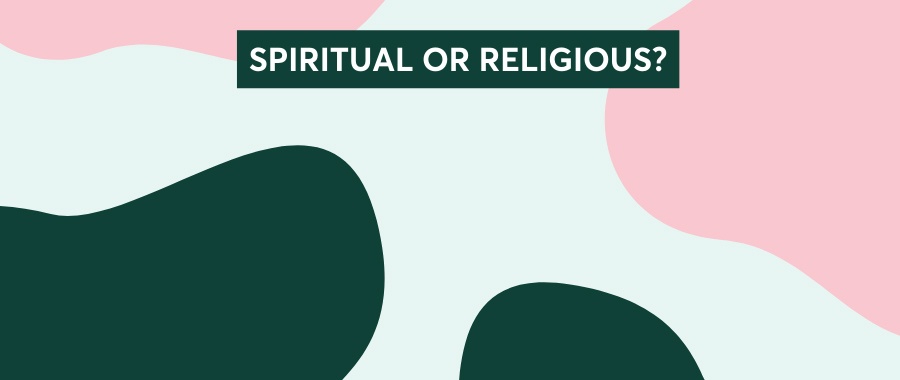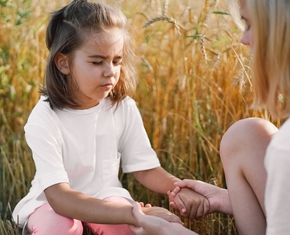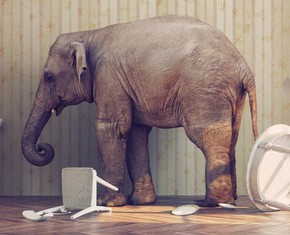The views expressed in our content reflect individual perspectives and do not represent the authoritative views of the Baha'i Faith.
Are you spiritual or religious? That’s the question a recent BahaiTeachings Live panel explored with our founder and editor in chief Payam Zamani. Five Baha’is from diverse backgrounds and experiences shared their to perspectives on the topic, and talked about their own answers to that question, as well as why so many people have walked away from religion while still seeking spirituality.
Panelists included Dr. Joy DeGruy, an acclaimed lecturer, social justice consultant, and author of the book, “Post Traumatic Slave Syndrome”; Seaon Shin, the founder of CodePath.org, a non-profit that focuses on increasing diversity in tech; Masud Olufani, an artist, host of the Retro Report on PBS, and host of “America’s Most Challenging Issue,” our podcast on race; Khadem Badiyan a student taking a gap year before college who recently recovered from COVID-19; and Layli Miller-Muro, the founder of the Tahirih Justice Center. Artists Jamey Heath and Shadi Toloui-Wallace offered music at the start and close of the discussion.
As you can see in the video above, Payam kicked the conversation off by asking the panelists why is it that so many people he speaks to, especially the young and the highly educated, seem to want what is supposed to be the “the fruits of religion — spirituality,” but don’t want to be labeled as religious. He’s also noticed that spirituality has become a business, with expensive ways to become spiritual being marketed to the public.
“There are yoga retreats, places where you go to be silent for a week or two, you go places to fast for a week or two,” Payam said. “I almost feel like I have to go to a beach in Bali to become spiritual.”
Indeed, Shoghi Effendi, one of the central figures of the Baha’i Faith, wrote:
“How to attain spirituality is indeed a question to which every young man and woman must sooner or later try to find a satisfactory answer. It is precisely because no such satisfactory answer has been given or found, that the modern youth finds itself bewildered, and is being consequently carried away by the materialistic forces that are so powerfully undermining the foundations of man’s moral and spiritual life.”
“It is a search, right? It is an earnest kind of striving or longing in the soul that beats in all of us — a calling if you will — and there is no price tag associated with that.” Masud Olufani said during the discussion. “Everybody, from the lowliest person who takes out the garbage, who does that essential function, to the person who is a pro basketball player or an elite businessman or what have you. Everyone has a calling inside of them, and the great journey of life is to satisfy that calling,” Masud said.
Khadem Badiyan shared that “everyone is drawn towards some sort of spiritual practice or is spiritual in nature.” But, Khadem said, “They have a really hard time making the leap of faith.”
So, why is it so hard to take that leap of faith?
Dr. Joy DeGruy said that she thinks this is partly because people associate religion with judgment and control. They avoid committing to any religious community because they don’t want people to tell them what to do. Joy believes the other challenge is the clergy.
“Unfortunately, religions are peopled by human beings who make mistakes, do dumb things, and then religion itself is judged by those individuals that reflect or represent the religion,” Joy said.
Layli Miller-Muro agreed with Joy that religion has a bad connotation for many. “There had been outright oppression in the name of religion,” Layli said. People, “have used and abused and done things in its name that are unholy and unjust and violent.” Layli pointed out that is why “Baha’is believe God renews his message and makes it relevant to today’s issues [and] current times, and helps us evolve with new meaning and new understanding.”
As Abdu’l-Baha, the son of the Prophet-Founder of the Baha’i Faith, said in a 1911 speech in London, “Baha’u’llah then came and once more renewed the foundation of Faith. He brought back the teachings of God, and the humane practices of the time of Christ. He quenched the thirst of the thirsty, He awakened the careless and called the attention of the heedless to the Divine secrets. He declared the unity of humanity, and spread abroad the teaching of the equality of all men.”
Seaon Shin told her fellow panelists that she sees faith as conscious knowledge expressed in action. “You can be scientific in your approach to religion,” Seaon said. “I think that you can take all the principles and apply them in your life and think ‘If I follow these, am I happier? If my family follows these, are we healthier? If my community follows these, will I have a better world?’ ”
















Comments
Sign in or create an account
Continue with Googleor